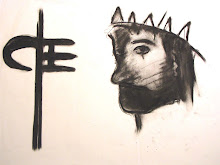Notes from Robert C. Solomon, Spirituality for the Skeptic: The Thoughtful Love of Life (Oxford, 2002). Solomon (September 14, 1942 – January 2, 2007) focused on critical thinking and building a cosmopolitan point of view. He taught for many years at the University of Texas.
...
Paraphrases and quotes:
Paraphrases and quotes:
Only an impoverished philosophy of religion reduces faith to beliefs, as propositions to be proven … as if they were club passwords or code words … all these sects and religions, secret societies, are all but indistinguishable from one another ...
Real faith is not belief but, as Kierkegaard says, passionate inwardness, which may not have any cognitive content, although it somehow captures cognitive aspirations.
"I will not explore faith as such for the reasons I have suggested, because it is a term too exclusively wedded to a small number of religious traditions and, even there, it suffers from some deep philosophical ambiguities and equivocations. It is treated (e.g. by Kant) as a species of rationality. It is treated (e.g. by Kierkegaard) as a species of irrationality. It is treated by some philosophers and theologians as an emotion, but by others as a virtue very different from emotion. But I think that faith can best be understood as a kind of reverence and a variety of trust (ultimately as a variant of love). Reverence, trust and love, I want to suggest, are the essence of spirituality."
"I want to talk about trust rather than faith and hope, because what we call faith and hope are more specially tied to particular traditions; because they are focused emotions (unlike reverence); and mainly because faith and hope appear in traditions that insist on metaphysical and ethical closure."
Faith, when by this word we mean something that speaks to all spirituality, is best conceived as "authentic trust." Authentic trust is constituted just as much by doubt and uncertainty as by confidence and optimism. Augustine, Kierkegaard and Dostoyevsky speak to a kind of life experience that is trust and despair at once. "Put another way, authentic trust, like true love and genuine faith, may be possible only in light of a breakdown of trust (or love or faith). One cannot authentically trust unless one has experienced the shipwreck of deep disappointment, loss or betrayal."
 Sometimes people envision reason as having no heart or passion or energy of emotion in it. Their conception of reason as neutrality, impartiality, detachment and remoteness has some consequences nearly opposite to the first inspiration for these ideas of reason or rationality or objectivity. In the long run, the result of this kind of thinking -- envisioning reason as a neutral mechanism -- is cynicism; a catastrophe emerges in backlash, as the resentiment of passion denied.
Sometimes people envision reason as having no heart or passion or energy of emotion in it. Their conception of reason as neutrality, impartiality, detachment and remoteness has some consequences nearly opposite to the first inspiration for these ideas of reason or rationality or objectivity. In the long run, the result of this kind of thinking -- envisioning reason as a neutral mechanism -- is cynicism; a catastrophe emerges in backlash, as the resentiment of passion denied.
"For those of us who enjoy the mixed blessing of seeing beyond all traditions and thus finding ourselves without an anchor in the world, spirituality is an arduous process, filled with doubts and misgivings, skeptical of glib formulations and platitudes, frustrated with the limitations of the personalities we have worked so hard to create over the course of a hard-headed lifetime."
"If the self to which spirituality and philosophy refers is nothing other than the everyday self, neither is it simply the everyday self. The tremendous effort to discover or realize our better selves within, through and out of the everyday self is what spirituality is all about."
"If the self to which spirituality and philosophy refers is nothing other than the everyday self, neither is it simply the everyday self. The tremendous effort to discover or realize our better selves within, through and out of the everyday self is what spirituality is all about."
As Hegel said, spirituality is a process rather than a result. This is a naturalized concept -- but it is still worth striving for -- in suffering and cosmic joy -- with all our struggles and shipwrecks -- everything good and bad that we experience -- "exactly what Nietzsche famously referred to as the Dionysian aspect of human life."


No comments:
Post a Comment